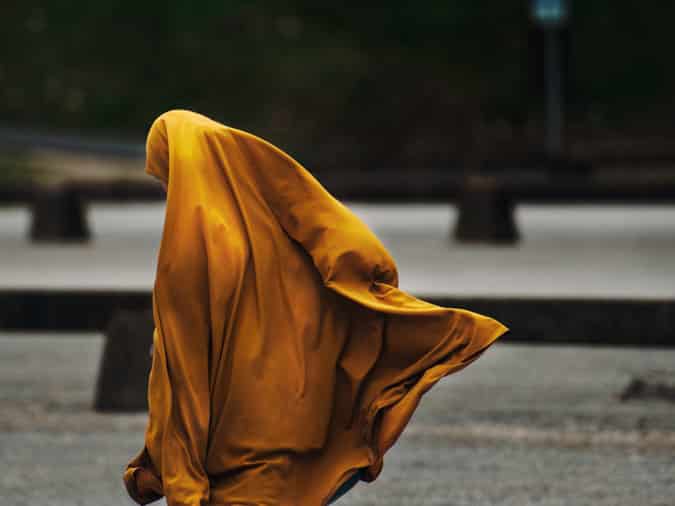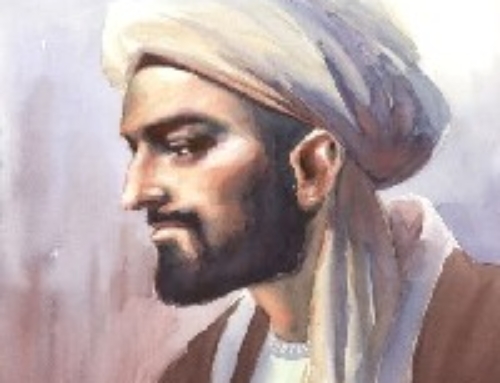Unveiling the Legacy of Amrah Bint Abdur Rahman
Amrah bint Abdur Rahman was amongst the greatest of the female Successors, the generation that came after that of the Companions of the Prophet. She was a scholar, a jurist, and a specialist in prophetic traditions (hadith). The great Caliph Umar b. ‘Abdul ‘Aziz used to say: “If you want to learn hadith go to Amrah.” Imam Zuhri, who is credited with compiling the first systematically edited compilation of hadith, would recommend: “Go to Amrah, she is a vast vessel of hadith.”
Challenging Legal Injustice With Knowledge and Wisdom
During that time, the Judge of Medina ruled in a case involving a Christian thief from Syria who had stolen something. The judge had ordered that his hand be severed. When Amrah bint Abdur Rahman heard of this decision, she immediately told one of her students to go tell the judge that he cannot sever the man’s hand because he had stolen something whose value was less than a single gold coin. As soon as he heard what Amrah had said, he ordered that the man be released, unharmed. He did not question her authority, nor did he seek a second opinion from other scholars who were quite numerous in Medina at the time. This incident is recorded in the compilation of Imam Malik, and this ruling is also his opinion in such cases.
Umm Darda
One of the great Successors, Umm Darda taught in both Damascus in the great Umayyad Mosque and in Jerusalem. Her class was attended by imams, jurists, and hadith scholars. The powerful Caliph Abdul Malik b. Marwan, who ruled an empire stretching from Spain to India, had a teaching license from Abdullah b. Umar, who was considered the greatest jurist of his time in Medina. When ‘Abdullah reached old age, the people asked him: “Who should we seek religious verdicts from after you?” He replied: “Marwan has a son (Abdul Malik), who is a jurist so ask him.” Hence, Abdul Malik was endorsed by Abdullah. This same Abdul Malik b. Marwan would attend the classes of Umm Darda, willingly and without reserve, learning from her. Furthermore, he would humbly serve her. It has been recorded that when Umm Darda was teaching and it was time to go to the mosque for prayers, she would lean on the shoulder of Abdul Malik b. Marwan due to her advanced age. He would then help her return to her place of teaching after the prayer. The fact that these women taught men who were themselves regarded as great scholars indicates the respect and status they had attained.
Reviving the Legacy
The mosque of the Prophet, peace be upon him, is undoubtedly one of the most sacred places in Islam, and his blessed grave is even more sacred. Around the beginning of the eighth century of the Muslim calendar, Fatima bint Ibrahim b. Jowhar lived and taught. She was a famous teacher of Bukhari, under whom both Imams Dhahabi and Subqi studied the entirety of Sahih Bukhari. When she came for the Pilgrimage (Hajj) her fame was such that as soon as the students of hadith heard that she had reached Medina, they requested her to teach in the Mosque of the Prophet. Ibn Rushayd al-Subki, who traveled from Morocco, describes one of her classes thus: “She was sitting in front of the blessed head of Prophet, peace upon him, and [due to her advanced years] she would lean on his grave. She would finish by writing and signing the license to transmit her narrations, personally, for all of the hadiths that were read by every student present.”
This story and similar ones make it clear that women have taught some of the most esteemed male scholars and did so in the best of mosques. Pathetically, today there are debates as to whether women can even come to the mosque for prayer! This is an indication of our ignorance of our own Islamic heritage, and of our digression from the practices of our pious predecessors.
Ayesha Bint Abdul Hadi
Ayesha bint Abdul Hadi used to teach in the grand mosque of Damascus. She was appointed by the Sultan of that time as the Master of Hadith and taught the compilation of Imam Bukhari. No man in the entire community could compare to her scholarly authority. Ibn Hajar Al-Asqalani, considered by many to be the greatest of all latter day hadith scholars, traveled to Damascus and studied more than one hundred books with her. Today, it would be difficult to find a “shaykh” who even knows the names of her books, to say nothing of having read them. In addition to her intellectual acumen, her chain of narration in hadith is regarded as the strongest from her generation back to the Prophet. Between her and Imam Bukhari are eight transmitters, and between Imam Bukhari and the Prophet there are variously, three, four or five transmitters. No other chain of narrators allows one to reach the Prophet with an equal or smaller number of narrators.
If we consider the great role of women such as Hafsah, may God be pleased with her and her father, in the compilation of the Qur’an, and the role of women like Ayesha bint Abdul Hadi in preserving and accurately conveying hadith, it is clear that the two most fundamental sources of our religion have been secured with the aid and blessing of women.
Fatima al-Juzdani
Fatima al-Juzdani, a great scholar from Isfahan in present-day Iran, read one of the great books of hadith, Al-Mu’jam Al-Kabeer, with Abu Bakr b. Rida, who himself studied the entirety of the book with its author, Imam Tabarani. This book has been published in thirty-seven volumes (unfinished). After mastering the book, she subsequently taught it many times. Not a single scholar alive today has studied this book, or even part of it with a teacher.
Unveiling the Influence
During the golden age of hadith, when the development of hadith literature and teaching was at its peak and caused societal reformation, there was a woman in Syria who was also known for her scholarship and the powerful positive influence she had on society. She helped in the reformation of communities in Damascus and Cairo by enjoining good and forbidding evil. Ibn Kathir, the student of Ibn Taymiyya, has written in his highly acclaimed work of history, Al-Bidaya w’al-Nihaya: “She reformed society by enjoining good and forbidding evil; she accomplished what men are unable to do, that is to say, she did more than the male scholars of her time.” This testimony was written by a man. Hence, no one can say it is the biased opinion of a woman, and thereby question its authenticity. This was a golden age full of proactive, confident, and talented women.
Hisham B. Urwah B. Zubair
Hisham b. Urwah b. Zubair was the teacher of Imam Malik, Abu Hanifa, Sufyaan al-Thawri, Saeed Qahtan, and is acknowledged as a great hadith scholar of that era. The most reliable hadiths narrated by him, found in both Bukhari and Muslim, are those he narrates from his wife, Fatima bint Mundhir. Sadly, many Muslim men today would not marry a woman more knowledgeable than themselves. The men of our past would proudly marry and learn from erudite women.
Fatima Al-Samarqandiyya
One of the best compilations in Hanafi fiqh is the masterpiece Badaya’ al- Sanaaya’ by Imam Kasani, whose wife was Fatima al-Samarqandiyya, daughter of Ala’addin al-Samarqandi. This book is a commentary on Tuhfa al-Fuqaha’ written by the latter. Fatima was a great expert in hadith and other religious sciences. Imam Kasani’s students narrate: “We saw our teacher at times would leave the classroom when he could not answer a certain difficult question. After a while he would return to elucidate the answer in great detail. Only later on did we learn that he would go home to put the same question to his wife in order to hear her explanation.” Clearly, he respected, and relied on the scholarship of his wife.
Women Scholars and Independent Jurisprudence
Not only were women scholars allowed to give binding religious verdicts (fatwas), but if they differed with their male contemporaries there would be absolutely no objections concerning their pronouncements. This was apparent from the earliest period. Illustrative of this is the opinion of Fatima bint Qais, who said that a husband need not provide support for his irrevocably divorced wife during her period of waiting. She based her opinion on a narration from the Prophet. Despite the fact that Umar and other senior Companions disagreed with her, based on their understanding of a verse in the Quran, they did not question her faith, impose sanctions on her, or prevent her from continuing to narrate the hadith and issuing her fatwa. This incident is interesting in that it presents the opinion of a woman that advances a ruling that is not deemed favorable to women. In so doing, she opposes an opinion advanced by men that is deemed favorable to women. If this incident had occurred in our times it would have surely been the point of much contention and discussion.
Empowering Women Scholars in Islam
The above are just some of the evidence that establishes the enormous contribution of women to the Islamic scholarly enterprise. The book from which the examples are excerpted contains many more arguments and can be found at www.interfacepublications.com. I hope that this article empowers us to ensure that women be accorded the status and dignity conferred on them by God, and acknowledged and acted upon by our pious predecessors. The positive perception and respect of women was based on the example and inspiration they received from our exemplary prophet, Muhammad, peace be upon him.
Adapted from an article published in Message Magazine.
Got Questions?
We have Answers. Get in touch now.








